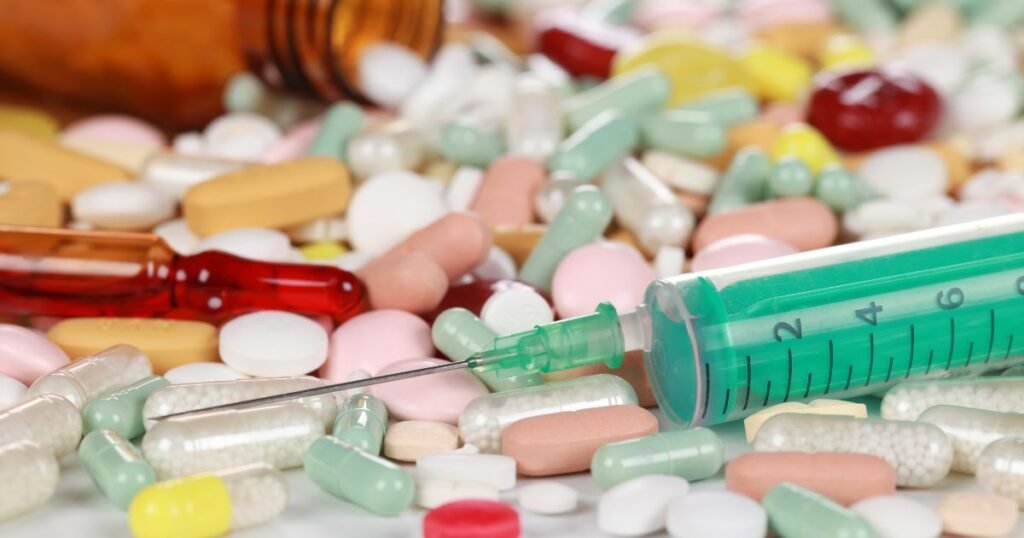Introduction
Breaking free from addiction can be challenging, but recovery is possible with the proper support and treatment. One medication that has helped countless individuals on their path to sobriety is Suboxone. But how long does Suboxone stay in your system? Understanding this crucial detail can help you navigate your recovery with confidence and clarity. In this blog post, we’ll delve into the mysteries surrounding Suboxone’s duration in the body, shedding light on its half-life, metabolism, detection in drug tests, and various factors that influence how long it stays within you. So let’s clear the fog around this vital aspect of recovery and empower ourselves with knowledge!
Read More : Knowledge Galaxy
How Does Suboxone Work?
Suboxone is a medication that is commonly used in the treatment of opioid addiction. It contains two active ingredients: buprenorphine and naloxone. Buprenorphine, a partial opioid agonist, works by binding to the same receptors in the brain that opioids bind to. Still, it produces less euphoria and physical dependence. This helps alleviate withdrawal symptoms and cravings associated with opioid addiction.
Naloxone, on the other hand, is an opioid antagonist that blocks the effects of opioids if taken while using Suboxone. This is a deterrent for individuals tempted to misuse or abuse opioids during their recovery process.

When Suboxone is taken sublingually (under the tongue), it is absorbed into the bloodstream. It travels to the brain, where it binds to opioid receptors. The slow release of buprenorphine from Suboxone allows for prolonged symptom relief without causing intense highs or lows.
This unique combination of buprenorphine and naloxone makes Suboxone an effective tool in helping individuals overcome their addiction by reducing cravings and withdrawal symptoms while minimizing the risk of misuse or overdose.
Understanding how Suboxone works can provide valuable insight into its role in aiding recovery from opioid addiction. It offers hope for those seeking a path towards sobriety by providing support during one’s journey towards lasting healing and freedom from substance dependency.
Suboxone Half-Life & Metabolism
Suboxone is a medication commonly used in the treatment of opioid addiction. Understanding its half-life and metabolism can help shed light on how long it stays in your system.
The half-life of a drug refers to the time it takes for half of the substance to be eliminated from your body. Suboxone, its primary active ingredient, buprenorphine, has an average half-life ranging from 24 to 60 hours.

Metabolism is crucial in determining how quickly Suboxone is processed and eliminated by your body. The liver metabolizes buprenorphine into various compounds excreted through urine or faeces.
Several factors can influence how long Suboxone stays in your system. These include individual differences in metabolism, dosage frequency, duration of use, and overall health status. For example, people with liver or kidney impairments may eliminate the drug at a slower rate.
It’s important to note that while Suboxone leaves the body relatively quickly after discontinuation, some metabolites may linger for more extended periods. Even if you stop taking Suboxone, traces may still be detectable in specific drug tests.
Suppose you’re undergoing drug testing or considering stopping Suboxone treatment altogether. In that case, it’s essential to consult with your Doctor for personalized guidance based on your specific circumstances.
Remember that this information provides general insights about Suboxone’s half-life and metabolism but should not replace professional medical advice tailored to your needs.
How Long Is Suboxone In Your System?: Detection & Drug Tests
When determining how long Suboxone stays in your system, detection and drug tests play a crucial role. Suboxone can be detected through various methods, including urine, blood, saliva, and hair tests.
Urine Test
Urine tests are the most common method used for detecting Suboxone. They can detect the presence of the drug for up to 3-4 days after the last dose. However, this time frame may vary depending on factors such as metabolism rate and frequency of use.
Blood Test
Blood tests are another option for detecting Suboxone. The drug can typically be seen in the blood for about 24-48 hours after ingestion. This window may also differ based on individual factors.

Saliva Test
Saliva tests have a shorter detection period compared to urine or blood tests. Suboxone can usually be detected in saliva samples within 1-2 days after use.
Hair Follicle Test
Hair follicle testing is considered one of the most accurate methods of detecting drugs over an extended period. With this type of test, traces of Suboxone can be found in hair samples for up to 90 days following use.
It’s important to note that these detection times are approximate and may vary from person to person due to factors like metabolism rate and overall health condition. Suppose you have concerns about being tested for Suboxone usage. In that case, it’s best to consult with a healthcare professional or addiction specialist who can provide specific guidance based on your situation.
Read More : How Long Does Suboxone Stay in Your System?
Factors Influencing How Long Suboxone Stays in Your System
When it comes to how long Suboxone stays in your system, several factors can influence the duration. One crucial factor is the dosage and frequency of Suboxone use. Higher doses and more frequent use can lead to a more prolonged presence of the drug in your body.
Another factor is your metabolism rate. Each person’s metabolism differs, meaning some individuals may process Suboxone faster than others. Generally, those with a faster metabolism will eliminate Suboxone from their system more quickly.
The method of administration also plays a role. If you take Suboxone orally as prescribed, it usually takes about 2-3 days for the drug to be eliminated. However, if you inject or snort Suboxone, it may stay in your system for a shorter period due to its rapid absorption.
Other factors include age and overall health condition. Younger individuals tend to metabolize drugs more efficiently compared to older adults. Additionally, those with liver or kidney problems may experience delayed clearance of substances like Suboxone.
Hydration levels can affect how long Suboxone remains detectable in your system. Drinking plenty of water helps flush out toxins through urine and leads to a quicker elimination time.
Remember that these factors are not exhaustive, and individual variations exist regarding how long Suboxone stays in your system without conclusive evidence on exact timelines for everyone.
Getting Treatment for Suboxone Addiction
If you or someone you know is struggling with a Suboxone addiction, seeking professional help is crucial. Overcoming addiction can be challenging, but recovery is possible with the proper treatment and support.
Various options are available for treating Suboxone addiction, including medication-assisted therapy (MAT), counselling, and support groups. MAT involves using medications like buprenorphine to taper off Suboxone while minimizing withdrawal symptoms gradually.

Counselling is essential in addressing the underlying issues contributing to addiction and developing healthy coping mechanisms. Individual therapy, group therapy, and family counselling can all be beneficial in the recovery process.
Support groups such as Narcotics Anonymous (NA) provide individuals with a safe space to share their experiences and gain encouragement from others who have been through similar struggles. These groups offer ongoing support even after formal treatment has ended.
Remember that seeking help is not a sign of weakness; it takes strength and courage to seek assistance. By taking this step towards recovery, you are giving yourself the opportunity for a brighter future free from substance abuse.
Conclusion
Understanding how long Suboxone stays in your system is essential for individuals taking the medication and those considering starting treatment. While everyone metabolizes drugs differently, knowing factors influencing detection times can provide valuable insights.
Always consult with healthcare professionals if you have concerns about drug testing or need guidance on managing your Suboxone use effectively. Remember that getting proper treatment for any substance abuse issue ensures better chances of achieving lasting sobriety and reclaiming control over your life.
Is Suboxone an Opioid?
Suboxone does indeed come within the category of opioids. The central nervous system is impacted by opioids, which also have analgesic (pain-relieving) properties. Opioids interact with opioid receptors in the body. Buprenorphine and naloxone are the two main active components of Suboxone. The main component, buprenorphine, is a partial opioid agonist, which means that while it binds to the opioid receptors in the brain, its effects aren’t as strong as those of complete opioid agonists like heroin or oxycodone. The supporting component, naloxone, functions as an opioid antagonist to counteract the effects of opioids and prevent overuse.
Is Suboxone a Controlled Substance?
Yes, Suboxone falls within the category of a restricted drug. Based on their risk for misuse and potential for medicinal benefit, medicines are categorized by the Drug Enforcement Administration (DEA) into several schedules. Due to its main component, buprenorphine, Suboxone is classified as a Schedule III restricted drug. Suboxone is listed as having a reduced risk for abuse than medications in higher schedules, such Schedule I or II, but it still has the potential to cause mild to severe physical or psychological dependency.
How long does Suboxone stay in your system after the last use?
The duration of Suboxone in your system can vary depending on several factors, including individual metabolism and dosage. Suboxone can be detectable in urine for up to 3-7 days after the last use.
Can I take Suboxone immediately after stopping opioids?
It is recommended to wait until you are experiencing mild to moderate withdrawal symptoms before starting Suboxone treatment. Starting too soon can lead to precipitated withdrawal, which can be highly uncomfortable.
Is Suboxone addictive?
While Suboxone does contain an opioid component, it is designed to help individuals overcome opioid addiction and reduce withdrawal symptoms. When taken as prescribed under medical supervision, the risk of addiction is significantly reduced. However, following your healthcare provider’s instructions closely is essential to achieve the best results.
Are there any side effects associated with Suboxone?
Like any medication, Suboxone can have side effects. Common side effects may include nausea, headache, constipation, sweating, and sleep disturbances. It’s important to discuss any concerns or persistent side effects with your healthcare provider.
Can I operate machinery or a vehicle while using Suboxone?
Suboxone might make you feel sleepy or lightheaded, especially when you first start the medication or change the dosage. It is advisable to delay learning how Suboxone affects you personally until you are comfortable driving or using machines. Always adhere to your doctor’s instructions whether operating machinery or operating a vehicle.
How long should I continue Suboxone treatment?
The duration of Suboxone treatment varies for each individual. It depends on factors such as the addiction’s severity, recovery progress, and your healthcare provider’s recommendations. Long-term maintenance treatment with Suboxone is often recommended to prevent relapse and support sustained recovery.
Can I drink alcohol while taking Suboxone?
It is generally advised to avoid alcohol while taking Suboxone. Combining alcohol with Suboxone can intensify the sedative effects and may lead to respiratory depression or other adverse reactions. Always consult your healthcare provider about the safe use of alcohol during Suboxone treatment.
Can any doctor prescribe Suboxone?
No, Suboxone is a prescription medication typically prescribed by healthcare providers who have received special training and have obtained a waiver to prescribe it for opioid addiction treatment. These providers are usually part of medication-assisted treatment (MAT) programs






